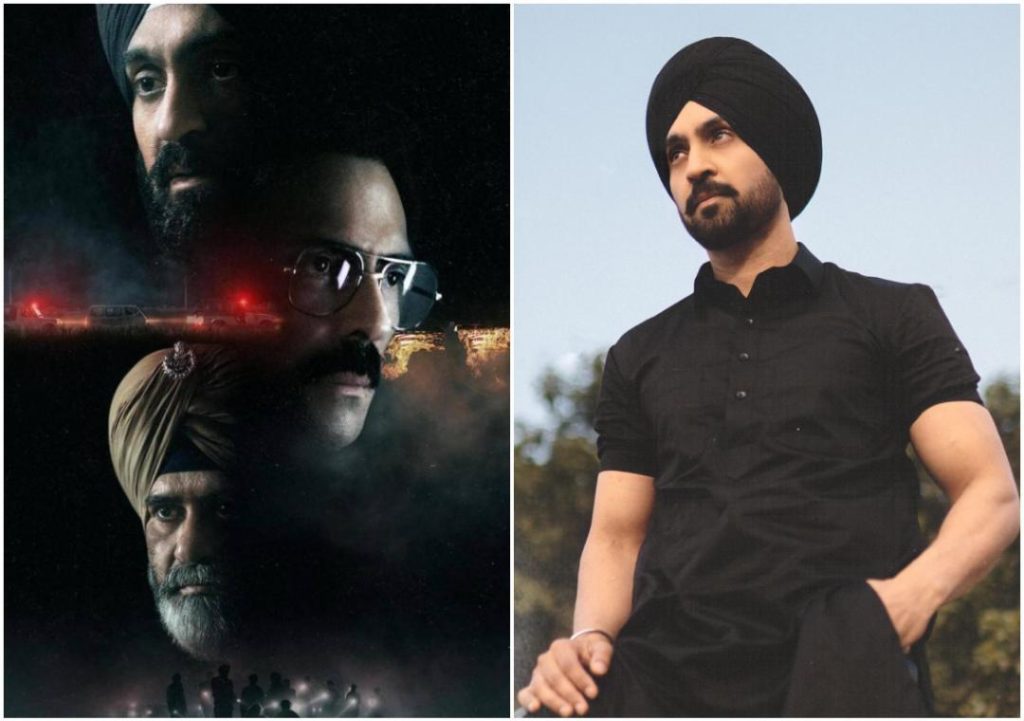
Won’t Support ‘Punjab ’95’ if Released with Cuts: Diljit Dosanjh
Diljit Dosanjh, the talented singer-actor, has been making headlines lately for his upcoming film ‘Punjab ’95’, a biographical drama based on the life of Sikh human rights activist Jaswant Singh Khalra. However, recently, the film hit a roadblock when it was denied certification by the Central Board of Film Certification (CBFC) due to some scenes being deemed objectionable. In an interview, Diljit Dosanjh has now spoken out on the issue, stating that he will only support the film if it is released without any cuts.
The 41-year-old actor expressed his disappointment and frustration at the CBFC’s decision, saying, “I’ll support only that film that will be released fully without any cuts.” He added, “I hope the film gets released in India soon.” It is evident that Diljit Dosanjh is deeply committed to the project and is determined to see it through to its completion, despite the obstacles that have been thrown its way.
For those who may not be familiar with the story of ‘Punjab ’95’, the film is based on the life of Jaswant Singh Khalra, a Sikh human rights activist who fought for justice and equality for the Sikh community during the tumultuous times of the 1990s. Khalra was a vocal critic of the Indian government’s dealings with the Sikh community and was known for his bravery and unwavering commitment to his cause.
The film, which stars Diljit Dosanjh in the lead role, has been in the making for several years and has gained significant attention and buzz due to its powerful and timely subject matter. The controversy surrounding the film’s certification has only added to the intrigue and public interest in the project.
Diljit Dosanjh’s decision to only support the film if it is released without cuts is a testament to his commitment to the story and its message. He has always been known for his strong convictions and his willingness to stand up for what he believes in, and this stance is no exception.
It is worth noting that the CBFC’s decision to deny certification to ‘Punjab ’95’ has sparked widespread outrage and criticism from fans and the film industry alike. Many have taken to social media to express their disappointment and frustration, calling for the film to be released without cuts and for the CBFC to reconsider its decision.
In the face of such opposition, Diljit Dosanjh’s stance is a powerful statement of defiance and a reminder that artistic expression should never be silenced or censored. His commitment to the film and its message is a beacon of hope for those who believe in the importance of telling important and powerful stories.
The controversy surrounding ‘Punjab ’95’ has also raised important questions about the role of censorship in Indian society. The CBFC’s decision to deny certification to the film has been seen by many as an attempt to suppress important and sensitive topics, rather than to protect the public from offensive material.
Diljit Dosanjh’s decision to only support the film if it is released without cuts is a crucial step in the fight against censorship and the protection of artistic freedom. It is a reminder that artists have a responsibility to tell important and powerful stories, even if they are difficult or controversial.
In conclusion, Diljit Dosanjh’s statement that he will only support ‘Punjab ’95’ if it is released without cuts is a powerful and timely reminder of the importance of artistic freedom and the need to tell important and powerful stories. The controversy surrounding the film’s certification has sparked widespread outrage and criticism, and it is clear that the film industry and the public are united in their desire to see the film released without cuts.
As the situation continues to unfold, it will be interesting to see how the CBFC responds to the backlash and whether the film will be released without cuts. One thing is certain, however – Diljit Dosanjh’s commitment to the film and its message is unwavering, and he will continue to fight for the right to tell his story, no matter what obstacles come his way.
Source:






